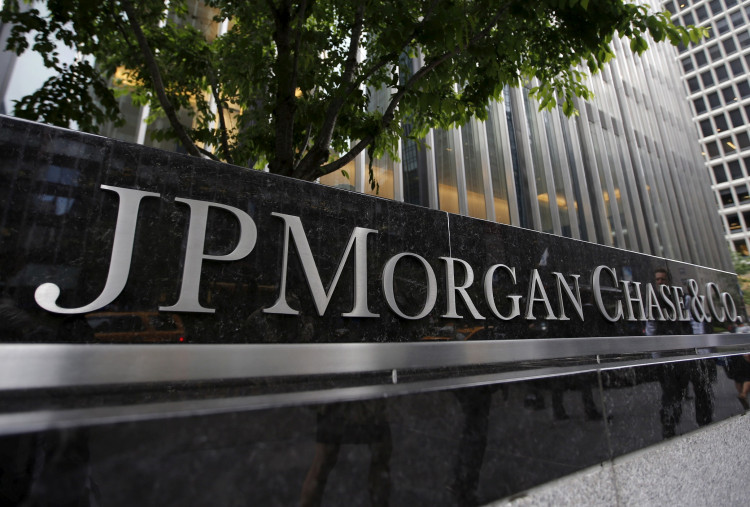JPMorgan Chase & Co., the largest bank in the United States, reported a 2% decline in profits for the third quarter of 2024, with net income dropping to $12.9 billion from the previous year's level. Despite the decline, the bank's Wall Street operations outperformed expectations, reflecting a strong performance in investment banking that helped offset rising provisions for credit losses.
The bank's provisions for credit losses surged to $3.1 billion, marking a 125% increase from a year ago, as JPMorgan braces for potential loan defaults in the future. However, the firm's investment banking revenue rose by 29% to $2.4 billion, signaling a resurgence in deal-making activities after a prolonged period of stagnation. "Broadly, I would say these earnings are consistent with the soft landing narrative, or arguably, what is increasingly a no-landing narrative," said Jeremy Barnum, JPMorgan's Chief Financial Officer, emphasizing the resilience of the U.S. consumer.
Total revenue for JPMorgan in the quarter climbed by 7% year-over-year to reach $42.65 billion, exceeding analysts' expectations of $41.65 billion. The bank also raised its forecast for net interest income for the full year by $1.5 billion, now expecting it to reach approximately $92.5 billion. This increase in revenue was bolstered by higher net interest income, which rose 3% year-over-year to $23.5 billion, driven by rising interest rates and strong lending activities.
JPMorgan CEO Jamie Dimon acknowledged the robust financial performance while also highlighting significant risks on the horizon. "We reported strong underlying business and financial results in the third quarter," Dimon stated. "However, recent events show that conditions are treacherous and getting worse." He pointed to several global concerns, including large fiscal deficits, infrastructure needs, and geopolitical instability, that could impact future economic growth.
Dimon's cautionary tone was mirrored by the bank's strategic financial moves. JPMorgan maintained its cautious approach to share buybacks, citing current market valuations as "slightly inflated." The bank disclosed a dividend per share of $1.25 and executed a share repurchase program totaling $6 billion during the quarter. "Given that market levels are at least slightly inflated, we maintain our modest pace of buybacks, although we reserve the right to adjust this at any time," Dimon noted.
While JPMorgan's Consumer and Community Banking division saw a 3% decline in revenue, its Commercial and Investment Banking segment posted an 8% increase. Notably, asset and wealth management revenue rose by 9% to $5.4 billion, with assets under management hitting a record $3.9 trillion. The increase in client assets to $5.7 trillion was driven by higher market levels and continued net inflows, underscoring the bank's strength in this segment.
Despite the positive developments in various areas, JPMorgan faced headwinds in its consumer banking operations. Debit and credit card sales volume grew by 6% year-over-year, but the bank's provisions for credit losses signaled a more cautious outlook on consumer spending and loan repayment capabilities. Barnum emphasized that while the U.S. consumer remains on strong footing, the rising credit provisions reflect prudence in a potentially volatile economic landscape.
Investment banking fees soared by 31% compared to the same period last year, led by robust performance across all product lines, reinforcing the view that deal-making is making a strong comeback. This optimism is shared by analysts who believe that the investment banking sector is recovering after a two-year lull, with JPMorgan positioned to benefit from the resurgence in mergers, acquisitions, and capital raising activities.
Dimon also addressed regulatory concerns, expressing anticipation over the upcoming Basel III endgame rules and their impact on the bank's capital requirements. "We await our regulators' new rules on the Basel III endgame and the G-SIB surcharge as well as any adjustments to the SCB or CCAR," he said. Dimon reassured investors of JPMorgan's financial resilience, highlighting its strong balance sheet and significant cash reserves.
The bank's capital ratios remained robust, with the Common Equity Tier 1 (CET1) capital ratio at 15.3% and the advanced CET1 ratio at 15.5%, reflecting its solid capital position in navigating the current economic uncertainties. "Regardless of the outcome of these rules, we have an extraordinarily strong balance sheet, evidenced by total loss-absorbing capacity of $544 billion plus cash and marketable securities of $1.5 trillion," Dimon affirmed.





